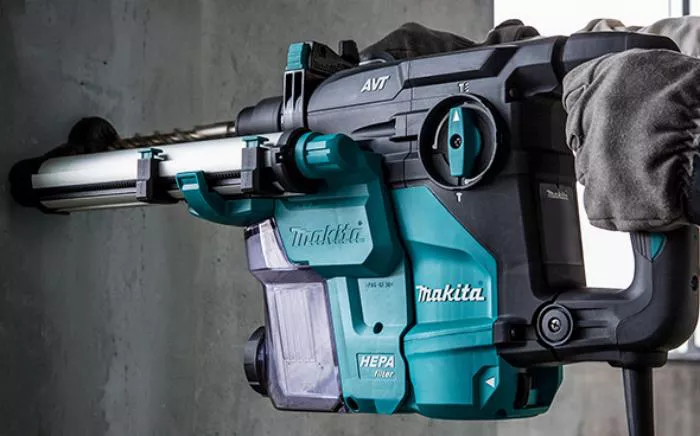The rise of brushless motors has significantly impacted the power tool industry. While they come with a slightly higher price tag compared to traditional brushed motors, their performance benefits are substantial. This is especially true for cordless tools, where brushless motors offer better energy efficiency and longer run – times. Now, Metabo has introduced a new line of Brushless Corded Rotary Hammers, which might seem counterintuitive at first since power efficiency isn’t as crucial in corded tools. However, there are several other compelling reasons for this innovation.
Advantages of Brushless Motors in Corded Rotary Hammers
Efficiency and Servicing
Brushless motors are more efficient than their brushed counterparts. This efficiency not only translates to better power utilization but also means that they require less servicing. For high – demand tools like grinders and rotary hammers, this is a significant advantage. As a warranty service center for most tool brands, we’ve witnessed firsthand the problems that arise when brushes in traditional motors wear down. Tools often lose power or slow down, and there are usually clear warning signs. However, users tend to keep using the tools until they break down completely, similar to driving a car with worn – out brakes or a blinking low – oil light. Brushless motors, on the other hand, run more smoothly, generate less heat, and can operate for much longer without issues.
Longevity
The reduced need for servicing and the ability to operate under heavy loads without significant wear and tear mean that brushless motors have a longer lifespan. This is particularly important for professionals who rely on their tools daily and can’t afford unexpected breakdowns.
The Power Dilemma
One might wonder why brushless motors are being used in corded rotary hammers when they don’t offer a significant increase in power. In the case of Metabo’s 1 – 9/16” rotary hammers, the KHEV 5 – 40 BL (brushless) has an impact energy of about 8.7 J, while the brush version, KH 5 – 40, has an almost identical impact energy of 8.5 J. The brush version is also a great hammer at a more affordable price. So, is the 50% higher cost of the brushless version worth it?
While the power difference is minimal, the long – term benefits of brushless motors, such as reduced servicing requirements and longer lifespan, might make them a better investment for some users. For those who use their rotary hammers frequently and want to minimize downtime and maintenance costs, the brushless option could be a wise choice.
Advanced Vibration Control: Metabo VibraTech (MVT)
In addition to the brushless motor technology, this lineup of rotary hammers features advanced vibration control technology called Metabo VibraTech (MVT). This is not just a simple dampening handle; it also includes an internal counter – balance mechanism.
The combination of these two features significantly reduces vibration. When comparing the two Metabo hammers mentioned above, the vibration level drops from 16.5 m/s² to 10.8 m/s². This reduction in vibration allows for much longer safe usage during a workday, reducing the risk of hand – arm vibration syndrome (HAVS) and improving overall user comfort.
Conclusion
Metabo’s new line of Brushless Corded Rotary Hammers combines the efficiency and longevity benefits of brushless motors with advanced vibration control technology. While the power difference between the brushless and brush versions is minimal, the long – term advantages of the brushless option, along with the improved comfort provided by the vibration control, make these rotary hammers an attractive choice for professionals. It remains to be seen whether the higher cost of the brushless models will be justified by their long – term performance and reduced maintenance requirements.
Related topics:
- Best Rotary Hammers of 2024 | Reviews by Woodsmith
- The 10 Best Rotary Hammers of 2025 (Reviews)
- Rotary hammers | Metabo Power Tools

